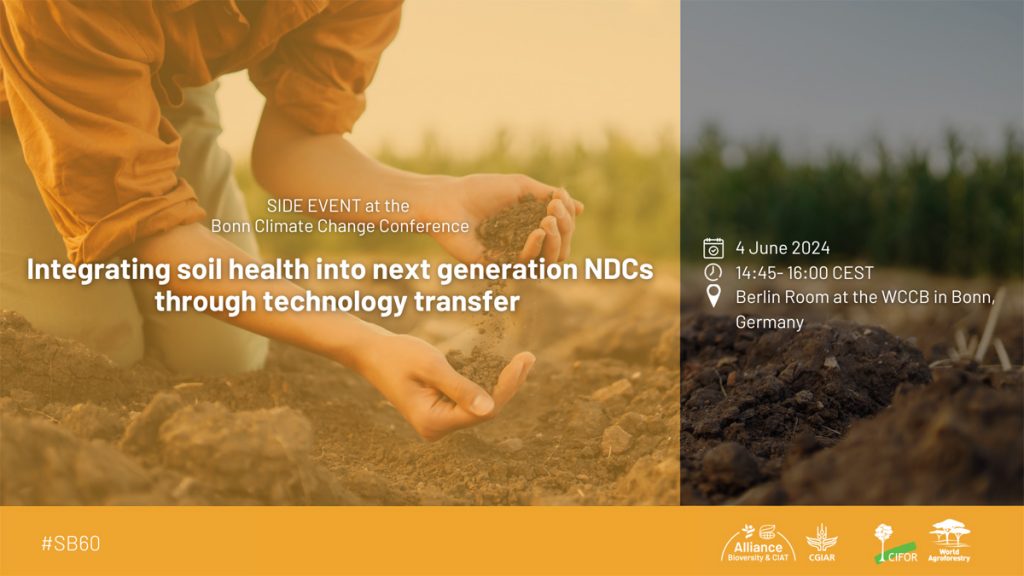Integrating soil health into next generation NDCs through technology transfer

CGIAR and its partners have been developing technologies to maintain and restore soil health in tropical agroecosystems for several decades. However, transfer of these technologies to developing country partners is limited to agricultural actors. Soil health has a much bigger role to play and is key nexus for biodiversity conservation and climate action as it contributes to both climate resilience and carbon sequestration. Countries are currently working on next generation NDCs and, typically, the technology transfer offers and needs have been weak in both developed and developing country NDCs. This event aims to discuss how integrating soil health technology into NDCs of all countries can offer a means for effective climate action and for concrete steps to reinforce technology transfer in the UNFCCC process.
Speakers:
- Chris Martius, CIFOR-ICRAF
- George Wamukoya, AGNES
- Lulseged Tamene, Alliance of Bioversity-CIAT
- Maike Voss, GIZ
- Martina Fleckenstein, WWF International
- Miriam Medel, OnePoint5
- UNCCD (tbc)













